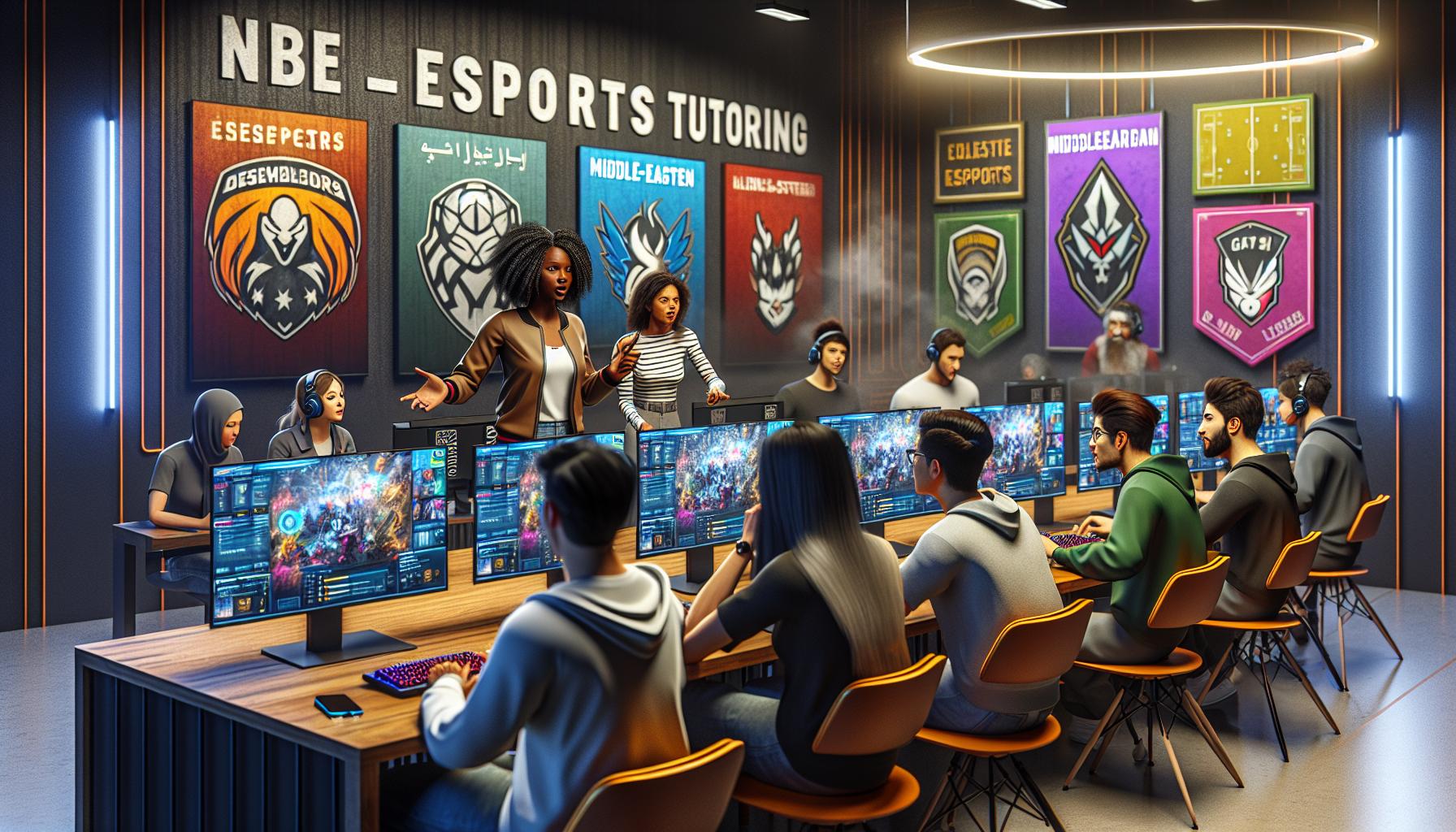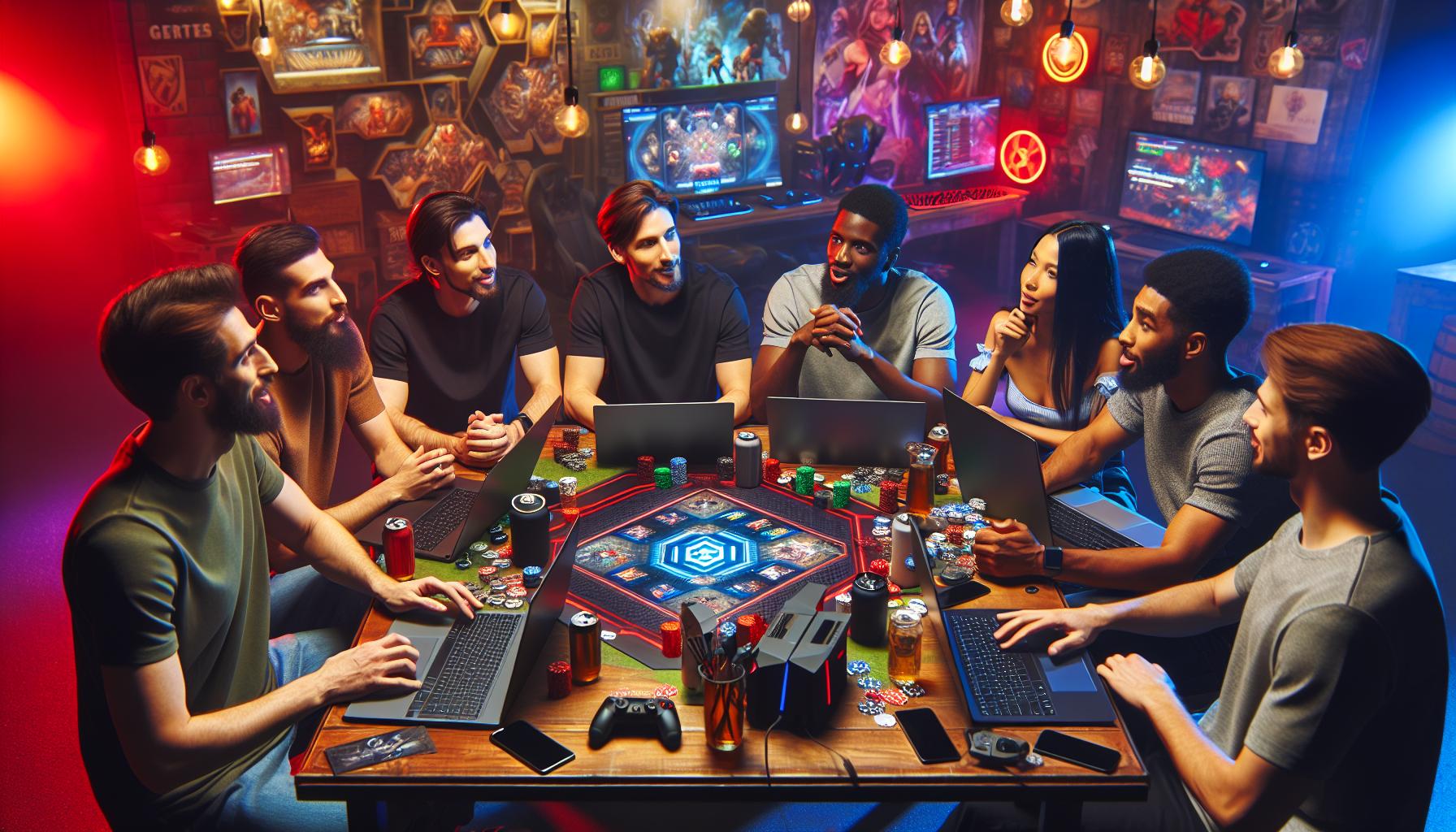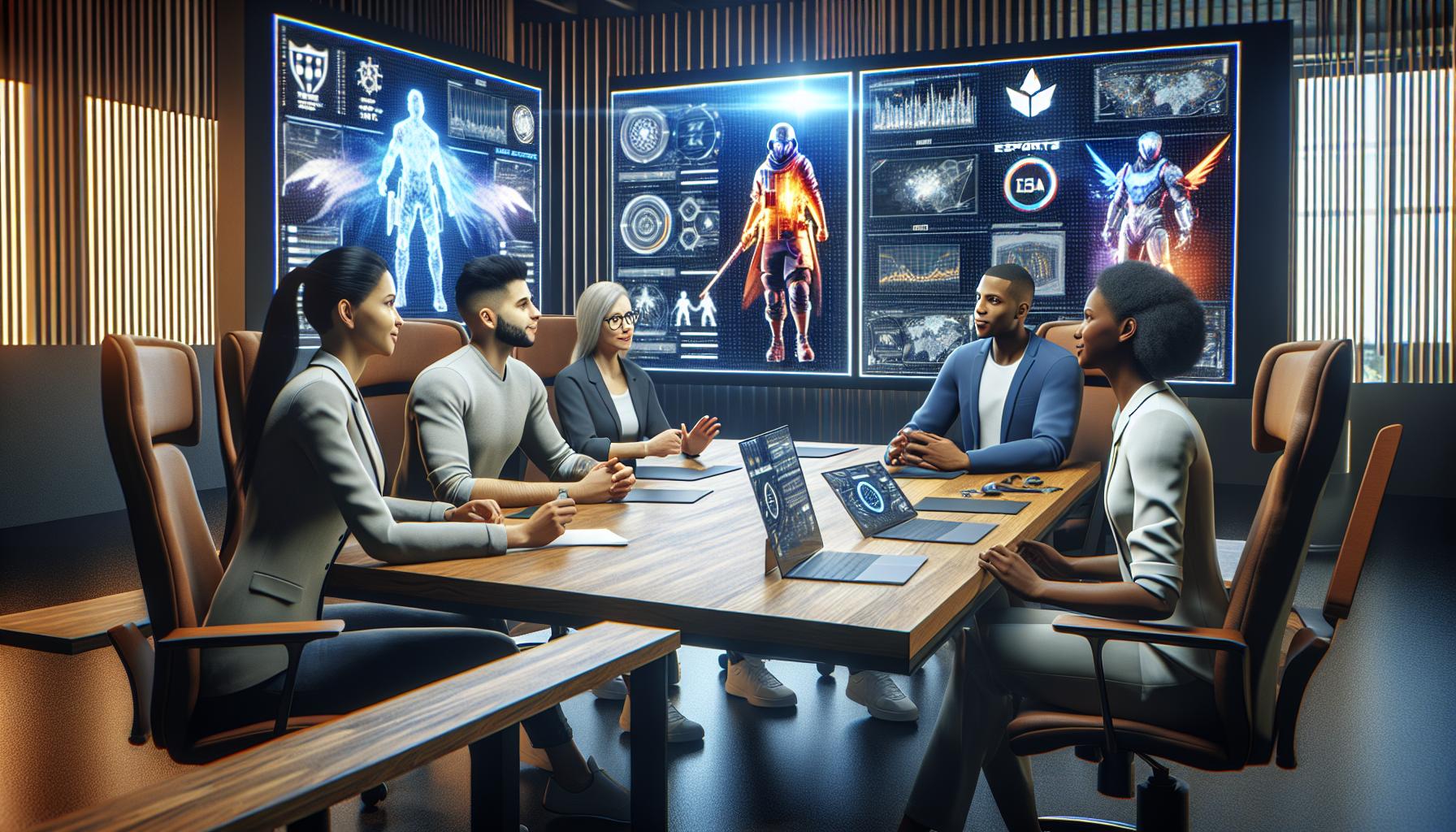Key Takeaways
- Evolution of Esports: Esports has transformed from a niche hobby into a significant global industry, highlighting the increasing demand for skilled trainers.
- Role of Trainers: Esports history trainers are essential in educating players about the evolution, key milestones, and strategies that have shaped competitive gaming.
- Learning Modules: Comprehensive modules cover foundational concepts, major tournaments, influential figures, and strategic insights to enhance players’ understanding of esports history.
- Engaging Education: Trainers utilize innovative methods, including interactive workshops and gamified learning, to make the educational experience more engaging and effective for players.
- Knowledge Retention: Understanding esports history improves players’ strategic decision-making during competitions, linking historical context to gameplay.
- Need for Improvement: Current training programs face challenges like accessibility and varied curriculum depth, which can be addressed through standardized curricula and enhanced trainer development.
Esports has rapidly evolved from a niche hobby into a global phenomenon, captivating millions with its competitive spirit and thrilling gameplay. As the industry grows, so does the need for knowledgeable trainers who can guide aspiring players through the intricacies of this dynamic field. An esports history trainer plays a crucial role in educating individuals about the development of competitive gaming, its key milestones, and the strategies that have shaped the current landscape.
Understanding the rich history of esports not only enhances players’ skills but also deepens their appreciation for the games they love. By exploring the origins of esports, major tournaments, and influential figures, trainers equip players with the insights necessary to excel in this fast-paced environment. As the demand for professional gamers rises, the role of the esports history trainer becomes increasingly vital in nurturing the next generation of talent.
Esports History Trainer
Esports history trainers provide vital knowledge on the evolution of competitive gaming. They cover key milestones, landmark events, and influential figures that shaped the industry. This background helps players develop a deeper understanding of their favorite games and enhances their overall skill set.
Trainers utilize various educational methods, including lectures, workshops, and interactive sessions. These approaches engage aspiring players and reinforce the importance of historical context in gaming. By studying the strategies of past champions and analyzing significant tournaments, players gain insights that inform their competitive tactics.
As the esports sector continues to grow, trainers play an essential role in bridging the gap between historical concepts and modern gameplay. Their expertise supports players in adapting to industry trends and developing a strong foundation in gaming culture. The demand for well-informed, skilled players makes the contribution of esports history trainers increasingly important in nurturing future talent.
Key Features Of Esports History Trainer

Esports History Trainers incorporate several key features that enhance the educational experience for aspiring players. These features focus on user engagement and effective learning outcomes.
User Interface Design
User interface design plays a significant role in the effectiveness of esports history training programs. Intuitive navigation allows users to easily access resources, ensuring a smooth learning experience. Interactive elements, such as quizzes and gamified learning modules, keep players engaged and foster a competitive spirit. Visually appealing graphics and clear layouts help convey complex historical facts while maintaining user interest. Responsive design adapts to various devices, providing accessibility for users on computers or mobile devices.
Learning Modules Available
Learning modules cover a wide range of topics essential for understanding esports history. Modules typically include:
- Foundational Concepts: Covers the origins of competitive gaming, tracing its development from arcade competitions to contemporary esports.
- Major Tournaments: Explores landmark events, showcasing tournaments like the World Cyber Games and The International, including their impact on the industry.
- Influential Figures: Reviews key personalities, such as players, developers, and organizers, who have played pivotal roles in shaping the gaming landscape.
- Historical Trends: Analyzes shifts in gaming culture, player demographics, and technological advancements that influenced gameplay and strategies.
- Strategic Insights: Offers lessons learned from historical matches, guiding players on how to adapt their tactics based on past successes and failures.
These modules cater to various learning preferences, allowing players to access videos, articles, and interactive content that enrich their understanding of esports history.
Benefits Of Using Esports History Trainer

Esports history trainers offer numerous advantages that enhance the learning journey for players. These benefits encompass deeper knowledge retention and a more engaging educational experience.
Enhanced Knowledge Retention
Enhanced knowledge retention occurs when players learn through structured historical content. Trainers emphasize pivotal moments in esports, such as iconic tournaments and famous players. This approach solidifies players’ understanding by connecting facts to real-world scenarios. By repeatedly exposing learners to concepts through quizzes and interactive discussions, trainers reinforce essential information. Players who grasp historical context often exhibit improved game strategies and decision-making skills during competitions.
Engaging Learning Experience
Engaging learning experiences arise from the innovative methods utilized by esports history trainers. These trainers implement diverse instructional strategies that appeal to different learning styles, including multimedia presentations and live demonstrations. Interactive workshops allow players to participate actively, fostering a collaborative environment that encourages discussion and critical thinking. Gamified elements, such as challenges and rewards, further captivate players, maintaining their interest while promoting knowledge application. This dynamic approach cultivates a love for learning and deepens players’ appreciation for the esports landscape.
Limitations And Areas For Improvement

Esports history training programs face several limitations that hinder their full potential. Accessibility remains a concern, especially for players from underrepresented regions without reliable internet access. Trainers must explore offline resources or community-driven initiatives to reach these players.
Curriculum depth varies significantly across training programs. Some programs may lack comprehensive coverage of critical historical events or influential figures, leading to gaps in players’ knowledge. Establishing standardized curricula that encompass essential milestones in esports history can improve the educational experience.
Interactivity, while a strength, can also present challenges. Excessive reliance on gamified elements may dilute content quality, diverting focus from historical significance. Balancing engagement with informative content requires thoughtful design and regular feedback from players to ensure that educational objectives are met.
Additionally, trainers’ expertise varies, affecting the consistency of instruction. Continuous professional development opportunities for trainers can enhance their effectiveness and keep them abreast of emerging trends in esports. Implementing mentorship programs can further strengthen trainers’ skills and knowledge.
Assessment methods also need refinement. Current evaluation techniques may not accurately measure players’ understanding of historical context or its application in competitive scenarios. Developing comprehensive assessment strategies that include both theoretical understanding and practical application can provide clearer insights into players’ learning outcomes.
Lastly, fostering collaboration between trainers and esports organizations can lead to more relevant training programs. By aligning training initiatives with industry needs, trainers can ensure that players acquire skills that reflect contemporary demands in the esports landscape.
The Role Of Esports History Trainers
The role of esports history trainers is pivotal in shaping the future of competitive gaming. By imparting knowledge about the industry’s evolution and key milestones, these trainers equip aspiring players with the insights necessary for success. Their innovative teaching methods foster engagement and understanding, making history relevant to modern gameplay.
As the esports landscape continues to expand, the demand for well-informed players will only grow. Trainers not only enhance players’ skills but also cultivate a deeper appreciation for the cultural significance of esports. Emphasizing a balanced approach to education ensures that players are not only competitive but also connected to the rich history that defines the gaming world.